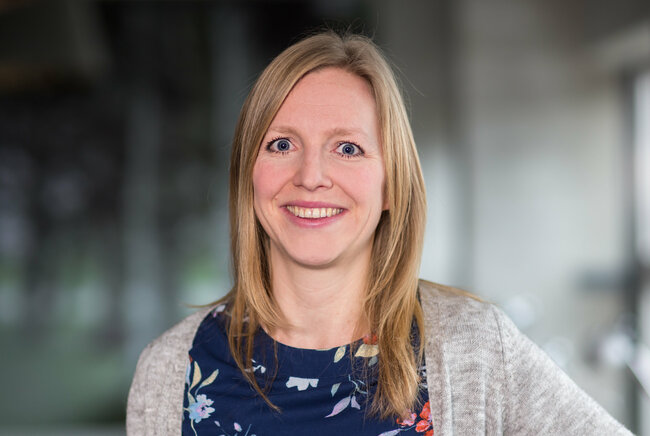Karin Smolders appointed associate professor
Her research focuses on technological solutions for monitoring and management of health

Karin Smolders has been appointed associate professor per 1 February. Her research focuses on technological solutions aimed at the monitoring and management of health. She takes a 24/7 perspective, examining the impact of technological innovations on both daytime functioning and sleep and accounting for circadian rhythmicity in our behavior and physiology when using technology to measure, predict or promote health. In terms of technology, she focuses on the effects of lighting technology on well-being and performance, the use of (wearable) sensor technology to quantify key health indicators in a longitudinal manner and at large scale, and mHealth technology aimed at promoting a healthy lifestyle.
Data-driven approach
With a background in environmental psychology, chronobiology and data science, Smolders focuses on understanding how the environment affects our well-being, health and performance from a data-driven approach. She explains: "In my research, I look at how technology can affect our well-being from different perspectives and can best be leveraged to support our sleep and daytime functioning. I work on the development and implementation of technologies that help us better understand and manage our health, with a specific focus on our 24-h biological rhythm, controlled by our internal clock."
Chronobiological perspective
She emphasizes the complex relationship between technology, health and human behavior throughout the day. Smolders integrates a chronobiological perspective into her research, using data science to arrive at data-driven, personalized and context-dependent solutions.
Technology-driven solutions
Smolders recognizes the challenges of maintaining a healthy lifestyle due to the omnipresence of technology (e.g., screen technology use in the evening). Her research focuses on optimizing technology to promote wellness, prevent lifestyle-related diseases and provide accessible care, while being mindful of potential adverse effects of technology use.
Sustainable health
In her new role as associate professor, Smolders aims to contribute new insights into the use of low-obtrusive technologies to support healthy lifestyles and promote sustainable health in both clinical and non-clinical populations. She also remains actively involved in education, seeking to combine research, teaching and valorization to make significant contributions to the development and implementation of technology to promote sustainable health and empower persons to excel in their everyday lives. In addition, she remains active as a board member of the Eindhoven Young Academy of Engineering (EYAE) and will start as an IFC* member in May.
About IFC's
The TU/e policy, 'Excellent People Attract Excellent People: The Next Generation', supports both new and current academic staff in shaping their career paths through a Development Track. Interdepartmental Committees (IFC’s) play a key role in decision-making about scientific and career development, enhancing the quality of academic performance evaluation and personal development feedback.